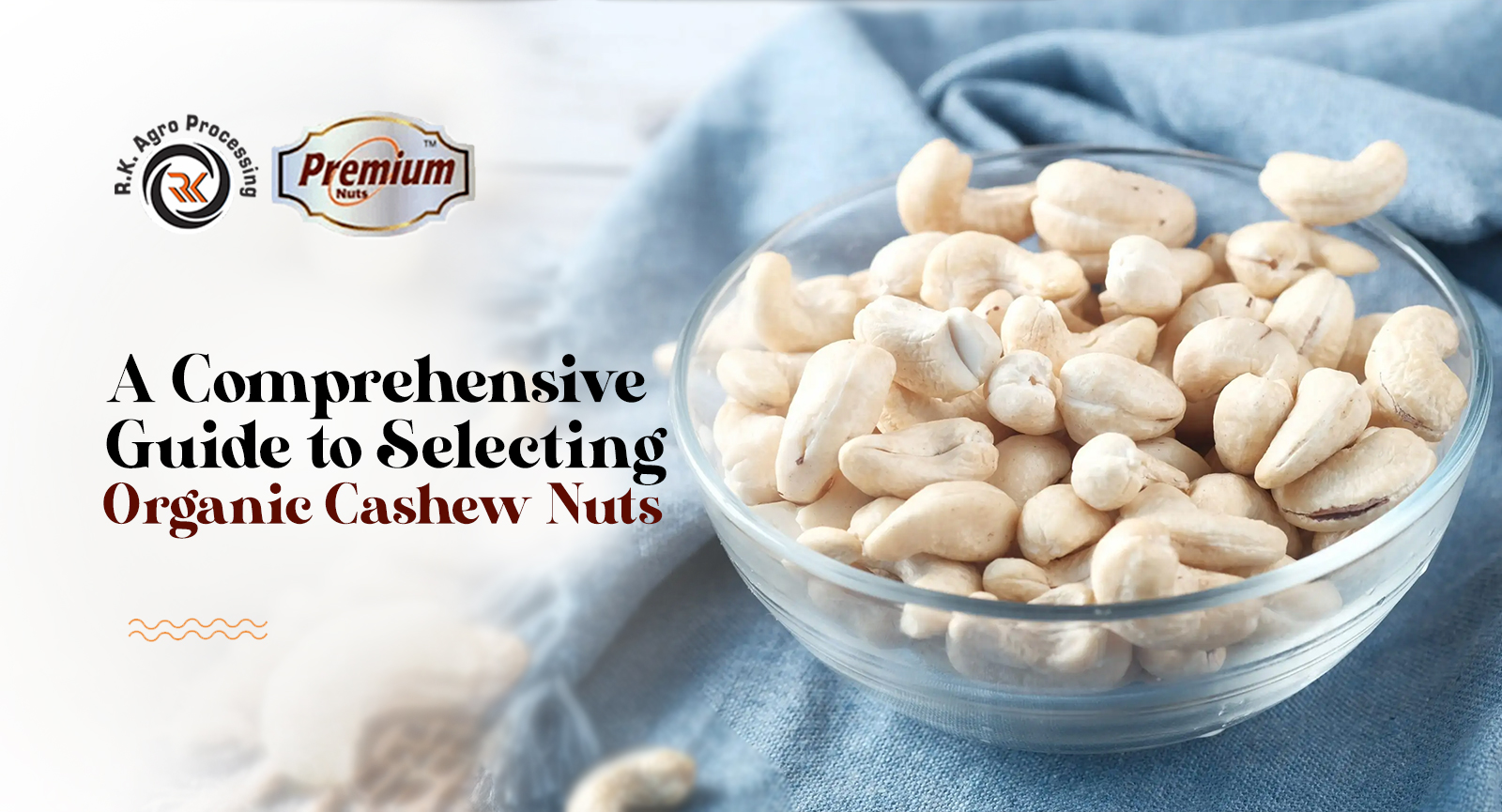Choosing organic cashew nuts can be easy if you know what matters most. You should choose cashews that have excellent flavor, offer health benefits, and are free from harmful chemicals. However, there are a lot of brands that offer cashew nuts. So, how do you find the best cashews? This simple guide has useful tips that you can follow to find high-quality cashews.
What to Look for in Organic Cashew Nuts
First of all, check organic certifications on the product packaging, like “USDA Organic” or “EU Organic.” If these terms are mentioned on the product, that means cashews are grown without synthetic pesticides or fertilizers. Also, check the source of the cashews.
India, Vietnam, and Africa are well-known hubs for quality production, and learning about regional flavors can be fun and useful.
Check the appearance of the cashews
Organic cashews should be creamy white, kidney-shaped, and uniform in size. Avoid nuts with cracks, spots, or discoloration. They must feel firm, not mushy. Smelling the cashews helps too; the aroma should be fresh, buttery, and slightly sweet. Any sour or unfamiliar smell could mean they’re stale or poorly stored.
Taste, Texture, and Packaging
Good organic cashew nuts should offer a gentle crunch and a delicious, naturally sweet flavor. If they taste bitter or bland or leave a strange aftertaste, avoid them. Always go for nuts stored in airtight bags or containers. Open or damaged packaging lets moisture and air spoil the nuts, so sealed packages are your safest bet.
When shopping, try to buy whole and unbroken cashews. Grading matters—bigger grades (like W180 or W320) often hint at higher quality, while smaller pieces are usually broken during processing. Choose grades wisely based on your recipe needs. Finally, compare prices, but don’t compromise quality for the cheapest option; organic cashews cost a bit more but are healthier and tastier.
Commercial characteristics
Organic cashew nuts are classed commercially based on the size of the fruit and the color, which is due to the roasting and drying process that the cashews go through before being exported. Cashews are classified according to their color.
In India, the lighter product is denoted by W (White Wholes), the intermediate gradation by SW (Scorched Wholes), and the darker ones by SSW (Scorched Wholes Second) and DW. In Brazil, the color W1 indicates white, W2 is an intermediate shade, and W3 is a deeper hue.
Whole cashews of the W and SW grades are further classified by size, i.e., the number of fruits in a pound (454 g). There are six sizes: 180, 210, 240, 320, 450, and 500, with 320 being the most typically imported in Italy.
Conclusion
Cashews also include numerous key vitamins, including thiamine, vitamin B6, biotin, vitamin K, and vitamin E, the latter of which is especially beneficial since it helps to reduce oxidative stress and so acts as an antioxidant. If you want to experience fresh, safe, and nutritious organic cashew nuts, try R.K. Agro Processing. Our cashews are carefully selected, certified organic, and processed to lock in flavor.

R.K. Agro Processing
R.K. Agro Processing uses a production and packing system that meets the required standards to ensure the freshness and deliciousness of the cashews. Our company makes sure to comply with the regulations to guarantee the quality of the cashews.




